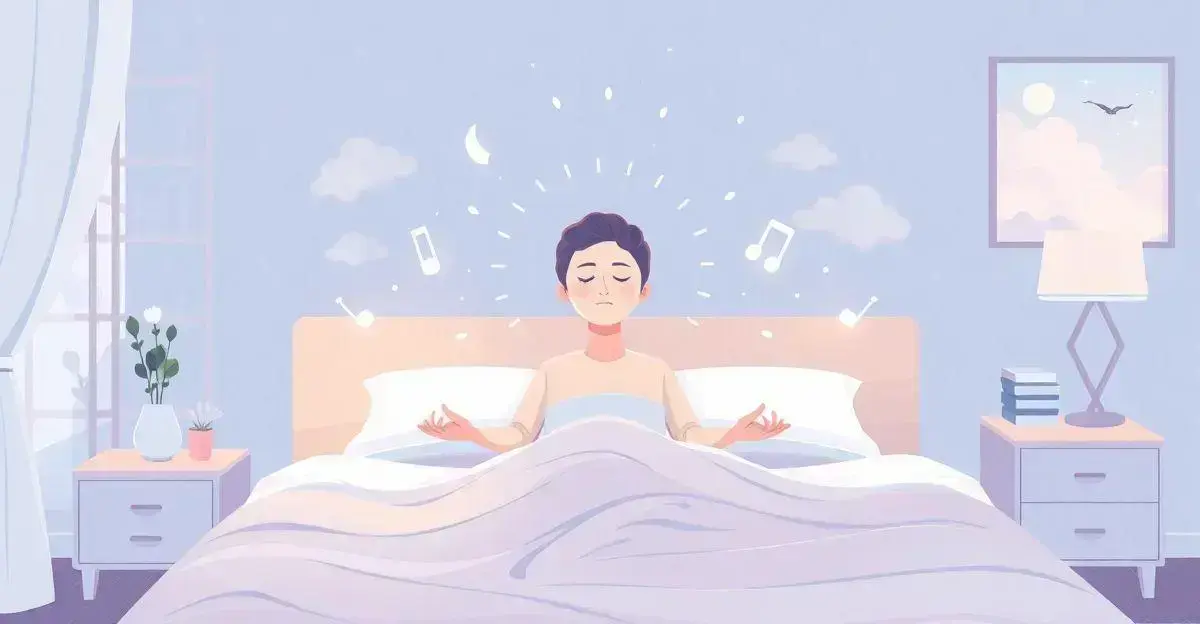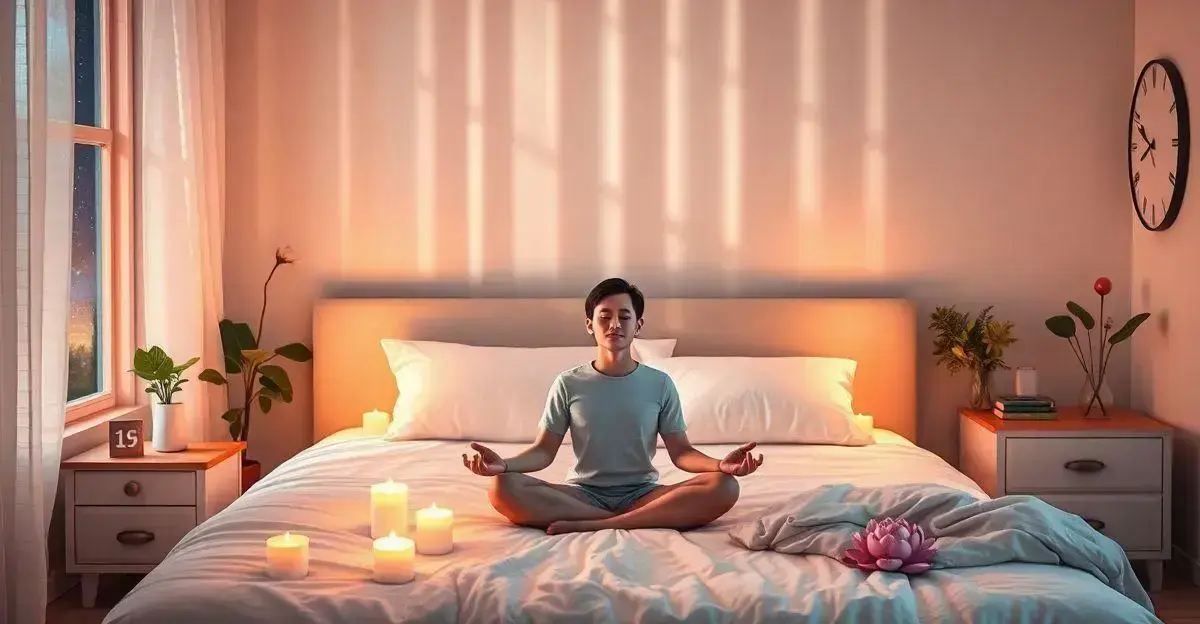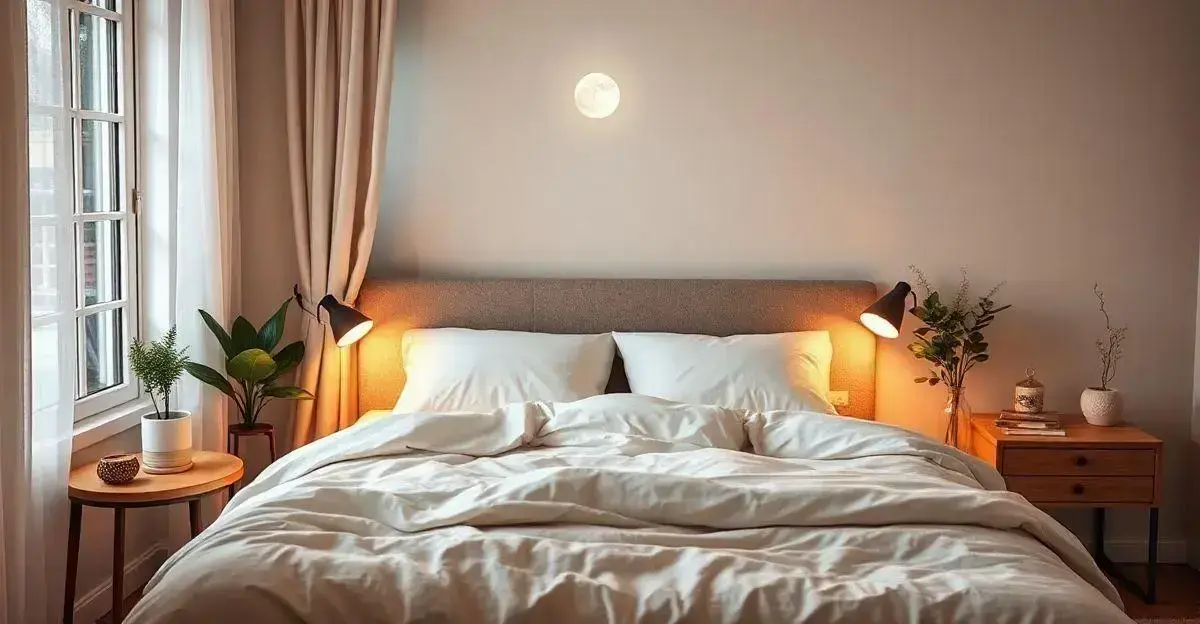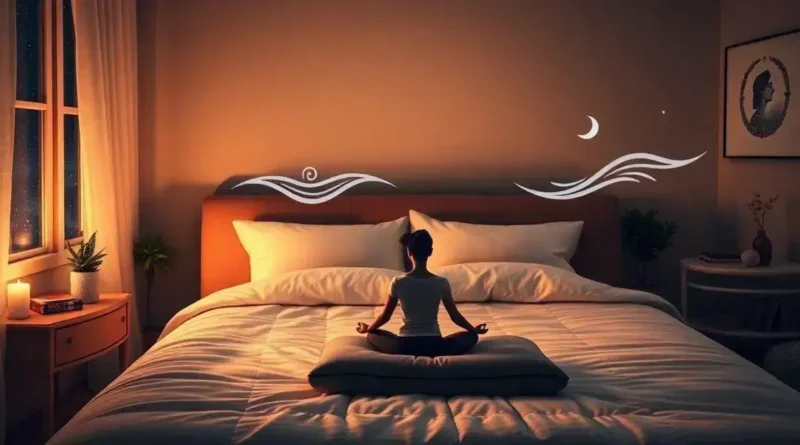Sleep Meditation Guided: Transform Your Nighttime Routine
Are you struggling to fall asleep? Sleep meditation guided is a powerful technique that can help you find tranquility and embrace restful nights.
Many individuals face challenges with stress and anxiety, often disrupting their sleep patterns. Exploring the world of sleep meditation can not only help you relax but also improve your overall well-being.
What is sleep meditation?
Sleep meditation is a practice that blends the art of meditation with the goal of promoting restful sleep. It often involves guided techniques, where an instructor or soothing voice leads you through relaxation exercises. The aim is to quiet the mind, let go of stress, and create a peaceful mental space, shifting your focus away from daily worries and fostering positive thoughts that encourage sleep.
This method typically incorporates various approaches such as deep breathing, visualization, and progressive muscle relaxation. These techniques help lower heart rates and promote mental tranquility, making it easier to drift off into a peaceful sleep. Many people start with a specific sleep meditation session, often available through guided audio tracks or meditation apps.
The goal is to establish a routine that signals to your body and mind that it’s time to wind down. Overall, sleep meditation can be a valuable addition to your nightly routine, enhancing the quality of your sleep and improving your overall well-being.
Benefits of guided sleep meditation

Guided sleep meditation offers a range of benefits that enhance your sleep quality and overall well-being. One major advantage is its ability to reduce stress and anxiety, making it easier to relax at the end of the day.
By following a guided meditation, you can better understand how to quiet your mind and release negative thoughts, which helps create a peaceful environment for sleep. Additionally, it can provide a sense of routine, signaling to your body that it’s time to wind down.
Another key benefit is improving your sleep quality. Many people report falling asleep faster and experiencing deeper sleep after practicing guided meditation regularly. This improvement occurs because meditation promotes relaxation, which is essential for restorative sleep.
Furthermore, sleep meditation can enhance your focus and creativity when you are awake. The practices you learn during guided sessions can help you manage stress better and maintain a positive mindset throughout the day.
In summary, incorporating guided sleep meditation into your nightly ritual can significantly improve your health, boost your mood, and create a more restful night’s sleep.
How to practice sleep meditation
Practicing sleep meditation involves several steps that can help you achieve a more restful night. First, find a quiet place where you can sit or lie down comfortably. It is important to choose a location free from distractions, allowing you to focus solely on your meditation practice.
Next, focus on your breathing. Deep, controlled breaths help calm your mind and body. Inhale slowly through your nose, hold for a moment, and then exhale gently through your mouth. This technique reduces tension and prepares you for deeper relaxation.
If you are using a guided meditation, play the audio softly to keep your attention engaged. Listen attentively to the instructions, and allow yourself to visualize peaceful scenes. Picture yourself in a serene location, perhaps a beach or a quiet forest, to enhance the calming effect.
Additionally, practice progressive muscle relaxation. Start from your toes and work your way up, tensing and then relaxing each muscle group. This process helps release any physical tension stored in your body.
As you practice, let go of any thoughts that arise during your meditation. Acknowledge them and gently bring your focus back to your breath or the guided meditation. Over time, you will find it easier to quiet your mind and drift into a peaceful sleep.
Techniques for effective sleep meditation

Effective sleep meditation techniques can significantly enhance your ability to relax and fall asleep quickly. One popular approach is guided visualization, which encourages you to imagine a peaceful scene, such as a serene beach or a quiet forest. By focusing on the details of this place, like the sound of waves or the rustling of leaves, you can effectively distract your mind from stress and daily worries.
Another helpful technique is deep breathing exercises. By taking slow, deliberate breaths, you can reduce tension and lower your heart rate. Inhale deeply through your nose, pause for a moment, and then exhale slowly through your mouth. Repeating this process several times helps calm your nervous system and promote relaxation.
Progressive muscle relaxation is also a powerful method. Start by tensing each muscle group for a few seconds and then releasing it. Begin with your toes and gradually work your way up to your head. This practice trains your body to recognize the contrast between tension and relaxation, aiding in the release of physical stress.
Finally, consider incorporating soothing sounds or soft music into your meditation practice. Sounds like rain, ocean waves, or gentle melodies can create a calming atmosphere and enhance your relaxation. Establishing the right environment is key to embracing effective sleep meditation and achieving a restful night’s sleep.
The science behind sleep meditation
The science behind sleep meditation reveals how it affects the brain and body. During meditation, the mind enters a state of relaxation that reduces stress and anxiety. This reduction in stress activates the parasympathetic nervous system, which promotes rest and relaxation.
Studies show that sleep meditation can lead to changes in brain activity. It enhances theta waves, which are associated with deep relaxation and creativity. Regular practice strengthens neural pathways, making it easier for individuals to access relaxation more quickly.
Moreover, sleep meditation influences the hormonal balance in your body. It may help lower cortisol levels, a hormone associated with stress. Lower cortisol levels can improve sleeping patterns, making it easier to fall asleep and stay asleep throughout the night.
Additionally, engaging in sleep meditation can lead to better overall health. Consistent practice has been linked to improved immune function and cardiovascular health, as it promotes relaxation and restfulness in the body.
Through understanding these scientific aspects, individuals can appreciate how powerful and beneficial sleep meditation can be for achieving a good night’s sleep and enhancing well-being.
Creating your ideal sleep environment

Creating your ideal sleep environment involves several key elements. First, consider the lighting. A dark room promotes better sleep. Use blackout curtains or an eye mask to block out light. You can also use dim lights in the evening to signal to your body that it is time to wind down.
Next, focus on the temperature of your bedroom. Keeping the room cool, around 60 to 67 degrees Fahrenheit, can help you fall asleep faster. The body naturally cools down during sleep, so a cooler room can assist this process.
Additionally, reduce noise levels. If you live in a noisy area, consider using earplugs or a white noise machine. Soft sounds can help drown out disruptive noises and create a peaceful atmosphere for sleep.
Another important aspect is comfort. Choose a comfortable mattress and pillows suited to your sleep style. Ensure your bedding is clean and cozy to promote relaxation.
Lastly, remove electronic devices from your bedroom. Screen time before bed can hinder your ability to fall asleep. Instead, create a device-free zone that encourages relaxation and restful sleep.
Guided meditation apps to try
There are many guided meditation apps available that can help you enhance your sleep experience. One popular option is Headspace, which offers various sleep meditation sessions tailored to help you relax and drift off. Its user-friendly interface makes it easy to find what you need.
Another great app is Calm. It provides soothing sounds, bedtime stories, and guided meditations specifically designed for sleep. Many users find its calming techniques helpful for winding down.
Insight Timer is also worth trying. This app features a large library of free meditations, including those aimed at promoting better sleep. You can choose from various teachers and techniques, making it a versatile choice.
Additionally, consider Pzizz, which combines sleep meditations with music and sound effects. Its unique approach can create a relaxing atmosphere that helps you fall asleep more easily.
Using these guided meditation apps can significantly improve your sleep quality by helping you develop a calming nighttime routine.
Incorporating sleep meditation into your routine

Incorporating sleep meditation into your daily routine can significantly improve your overall sleep quality and support a healthier lifestyle. Begin by setting aside a specific time each night to practice meditation, which helps train your mind and body to prepare for sleep.
Choose a comfortable, distraction-free spot in your home. You can sit in a chair or lie on your bed—whichever feels most relaxing. Make sure this space is calm and inviting to enhance your meditation experience.
Start with short sessions of 5 to 10 minutes and gradually increase the duration as you become more comfortable. Using guided meditations from apps or online resources can provide helpful support as you establish your practice.
Consistency is essential. Aim to meditate at the same time every evening, as this regularity reinforces the habit and signals to your body that it’s time to wind down.
Consider pairing meditation with other calming rituals, such as reading or gentle stretching, to further prepare your mind for rest. These activities can enhance the effects of your meditation practice.
By integrating sleep meditation into your routine, you can establish a peaceful pre-sleep ritual that promotes better rest and overall well-being.
Common mistakes to avoid in sleep meditation
When practicing sleep meditation, many people make common mistakes that can hinder their progress. One mistake is having unrealistic expectations. Meditation takes time to master, and expecting immediate results can lead to frustration.
Another common error is ignoring the importance of a quiet environment. Trying to meditate in a noisy or chaotic setting can be distracting. It’s essential to find a calm space that fosters relaxation.
Some individuals also rush through the meditation process. Remember that taking your time is important. Allow yourself to fully engage in the practice without hurrying to finish.
Additionally, skipping the preparation phase can weaken the experience. It is beneficial to engage in deep breathing or gentle stretches before meditating to enhance relaxation.
Finally, not sticking to a schedule can be a mistake. Consistency is key to forming a habit. Try to practice sleep meditation regularly to make it more effective over time.
Frequently Asked Questions about Sleep Meditation
What is sleep meditation?
Sleep meditation is a practice that combines meditation techniques with the goal of promoting restful sleep.
How can sleep meditation help improve my sleep quality?
It reduces stress and anxiety, allowing your mind to relax and facilitating a quicker and deeper sleep.
Do I need any special tools to practice sleep meditation?
While you can practice without tools, using guided meditation apps can enhance your experience.
How long should I meditate before going to sleep?
Starting with 5 to 10 minutes is ideal, gradually increasing the duration as you become comfortable.
What if I have trouble focusing during meditation?
It’s normal to have distractions. Acknowledge them and gently bring your focus back to your breath or guided session.
Can sleep meditation be practiced during the day?
Yes, practicing during the day can help reduce stress and prepare you for better sleep at night.
Is sleep meditation effective for everyone?
While many people find it helpful, results can vary based on individual preferences and practices.
